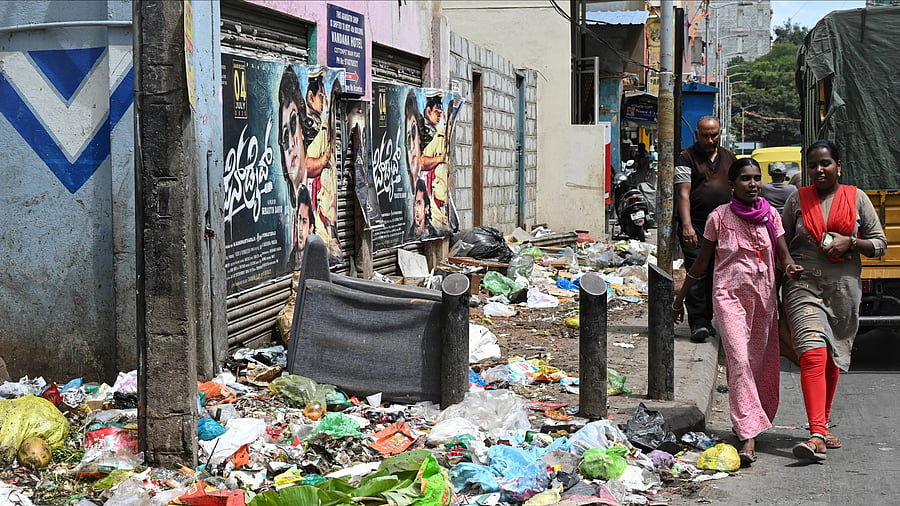
In Swachh Survekshan 2025, Bengaluru was ranked the fifth dirtiest among cities with a population of one million and more.
Credit: DH photo
Bengaluru: Stung by Bengaluru’s poor showing in Swachh Survekshan 2025 (cleanliness survey), the state government has decided to take back the responsibility of collecting household and commercial waste from Bengaluru Solid Waste Management Ltd (BSWML).
The task will now be handled directly by the BBMP’s zonal commissioners before eventually shifting to the five soon-to-be-formed city corporations.
The major shake-up comes just three years after the government had formed BSWML to exclusively and professionally handle the city’s solid waste management system that was controlled by the “garbage mafia.” Going forward, BSWML will solely focus on processing and disposal of waste, which includes managing waste processing plants and landfill sites.
These decisions were taken at a recent review meeting chaired by Deputy Chief Minister D K Shivakumar and attended by Chief Secretary Shalini Rajneesh. The meeting took note of Bengaluru’s dismal performance in the cleanliness survey, which they said caused a major embarrassment to the government.
Under the new arrangement, zonal commissioners will be accountable for primary collection and transportation of waste, meaning supervision of auto tippers, compactors in particular and cleanliness of the zone in general. They will be assisted by deputy general managers (zones) and assistant general managers (divisions). Ironically, both posts fall under BSWML and may lead to confusion.
Some of the responsibilities assigned to the zonal commissioners include: improving source segregation, reviewing the solid waste master plan to identify missing infrastructure or manpower in areas where the population has gone up, imposing penalties on citizens who fail to hand over waste to collection vehicles among others.
As per the latest figures, Bengaluru generates around 3,025 tonnes of wet waste daily. Of this, 2,180 tonnes are processed, while the remaining 850 tonnes end up in landfill sites.
The city also produces 1,925 tonnes of dry waste daily, but only 1,200 tonnes are processed, with 725 tonnes mixing with wet waste before being dumped.
To address the gaps, the meeting proposed setting up new wet waste-processing plants, particularly in wards that generate large amounts of waste. Instructions have also been given to establish a dry waste collection centre or material recovery facility in every ward by partnering with ragpickers for maintenance.
BBMP Commissioner M Maheshwar Rao said that the changes were meant to “make zonal commissioners accountable” for solid waste management until the new corporations are in place.